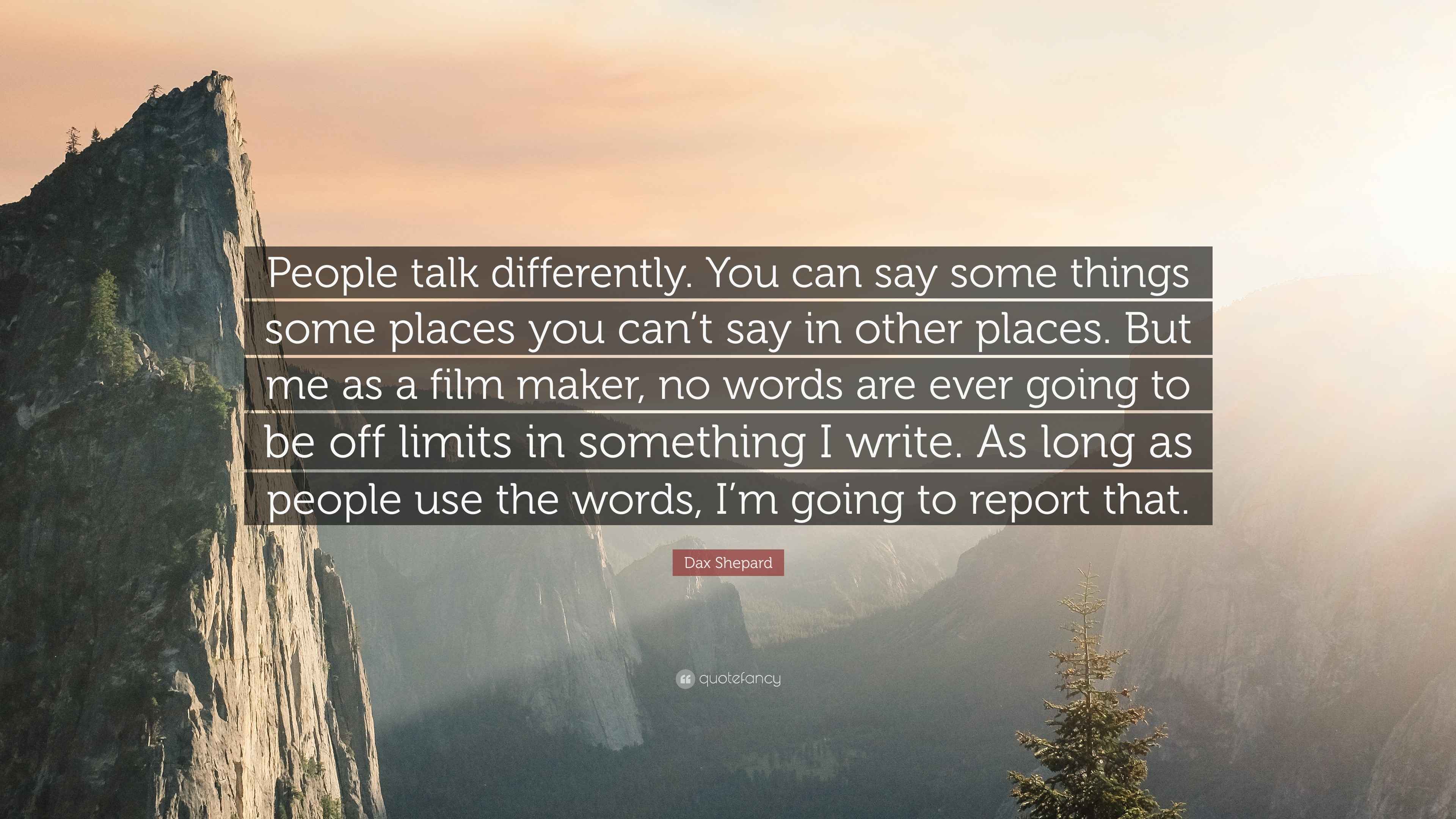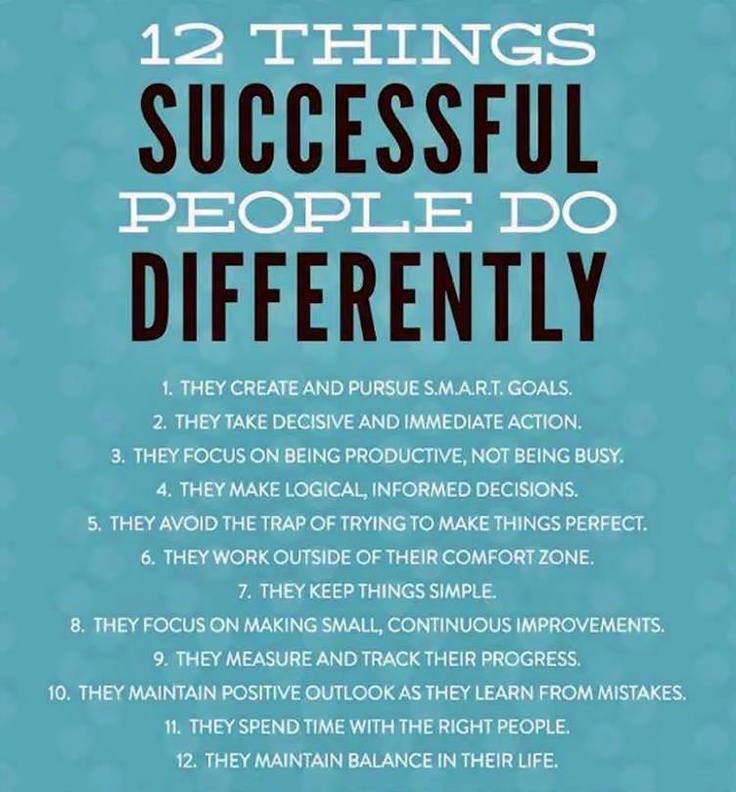Things People Say Differently: A Deep Dive Into Linguistic Quirks Around The Globe
Have you ever noticed how people from different parts of the world say the same thing in completely different ways? It's like we're all speaking the same language, but somehow, it just doesn't sound the same. Whether it's slang, dialects, or just plain old regional quirks, the way we communicate can be as diverse as the cultures we come from. So, buckle up, because we're diving deep into the fascinating world of "things people say differently"!
Language is more than just a tool for communication—it's a reflection of who we are, where we come from, and how we see the world. And when it comes to "things people say differently," there's so much more than meets the eye—or ear, for that matter. From the way we greet each other to the way we express our emotions, every region has its own unique spin on the English language.
But why does this matter? Well, understanding these differences can help us connect better with people from all walks of life. Whether you're traveling the world, working in a global team, or just trying to make sense of that one weird phrase your friend from another country keeps using, knowing "things people say differently" can open doors you never knew existed.
Read also:Justpasteit Your Ultimate Solution For Quick And Secure Content Sharing
Table of Contents
- Introduction
- Language Variations Around the World
- Slang and Dialects: The Heart of Regional Speech
- Common Phrases People Say Differently
- The Cultural Impact of Diverse Speech Patterns
- Miscommunication: When Things Get Lost in Translation
- The Role of Technology in Shaping Modern Speech
- Historical Context: How Language Evolved Over Time
- Tips for Learning and Understanding Different Speech Patterns
- Conclusion: Embracing Linguistic Diversity
Language Variations Around the World
Let's kick things off with a little global tour of how people say things differently. Did you know that English isn't exactly the same everywhere? In the UK, they might call it a "lorry," but in the US, it's a "truck." And don't even get me started on the Aussies and Kiwis—they've got their own lingo that could leave even the most seasoned traveler scratching their heads.
But it's not just vocabulary that changes. Grammar, pronunciation, and even intonation can vary wildly depending on where you are. For example, the British might say "I haven't got any money," while an American would likely say "I don't have any money." These subtle differences might seem small, but they can add up to some pretty big communication barriers if you're not paying attention.
Regional Variations in English
Here's a quick breakdown of some of the most common regional variations in English:
- UK vs. US: As mentioned, the UK and US have some pretty distinct differences in vocabulary and grammar.
- Australia: Aussies love to shorten words—like "barbie" for barbecue or "footy" for football.
- New Zealand: Kiwis have their own unique slang, like "sweet as" for something being really cool.
- South Africa: You'll hear a lot of Afrikaans mixed in with English, like "braai" for barbecue.
Slang and Dialects: The Heart of Regional Speech
Slang and dialects are like the spice in the linguistic stew. They add flavor, personality, and a whole lot of character to the way we speak. But they can also be a bit tricky to navigate, especially if you're not familiar with them.
For example, in the US, different regions have their own unique slang. In the South, you might hear phrases like "y'all" or "fixin' to," while in the Northeast, you might hear "wicked" or "packie." And let's not forget about the Valley Girl speak of the '80s, which gave us gems like "like, totally awesome!"
Why Do People Use Slang?
Slang serves a few important purposes:
Read also:Ximena Saacuteenz A Rising Star In The World Of Entertainment
- Identity: It helps people identify with a particular group or culture.
- Expression: Slang can be a more creative and expressive way of communicating.
- Exclusivity: Sometimes, people use slang to create a sense of exclusivity or in-group identity.
Common Phrases People Say Differently
Now, let's get into some of the most common phrases that people say differently around the world. These are the little things that might not seem like a big deal, but they can make a huge difference in how we communicate.
Take the phrase "I'm good." In the US, it's a perfectly acceptable response to "How are you?" But in the UK, it might be seen as a bit too casual, and people might prefer to say "I'm fine" or "I'm alright." And then there's the classic "Cheers" vs. "Thanks" debate—while both are perfectly acceptable, they might carry slightly different connotations depending on where you are.
Examples of Common Phrases
- Greetings: "Hi" vs. "Hello" vs. "G'day"
- Goodbye: "Bye" vs. "Catch you later" vs. "Ta"
- Agreement: "Yeah" vs. "Yep" vs. "Absolutely"
The Cultural Impact of Diverse Speech Patterns
Language doesn't exist in a vacuum—it's deeply tied to culture, history, and identity. The way we speak can tell a lot about who we are and where we come from. And when it comes to "things people say differently," culture plays a huge role.
For example, in some cultures, indirect communication is highly valued. In Japan, for instance, people might avoid saying "no" outright and instead use phrases like "it's difficult" or "we'll consider it." In contrast, in many Western cultures, direct communication is often seen as more honest and straightforward.
How Culture Shapes Language
Here are a few ways culture can shape the way we speak:
- Politeness: Some cultures value politeness and formality more than others.
- Directness: Direct vs. indirect communication styles can vary widely across cultures.
- Humor: What's considered funny in one culture might not be in another.
Miscommunication: When Things Get Lost in Translation
Let's face it—miscommunication happens. And when it comes to "things people say differently," it can lead to some pretty hilarious—or awkward—moments. For example, if someone from the UK says they're "knackered," they might not realize that an American might not have a clue what they're talking about.
But miscommunication isn't always funny. In professional or academic settings, it can lead to misunderstandings that might have real-world consequences. That's why it's so important to be aware of these differences and to approach communication with an open mind and a willingness to learn.
How to Avoid Miscommunication
Here are a few tips for avoiding miscommunication:
- Ask Questions: If you're not sure what someone means, don't be afraid to ask for clarification.
- Be Patient: Sometimes, it just takes a little extra time to make sure everyone's on the same page.
- Do Your Research: If you're traveling or working with people from another culture, take some time to learn about their language and communication styles.
The Role of Technology in Shaping Modern Speech
Technology has had a huge impact on the way we communicate. From text messaging to social media, we're constantly finding new ways to express ourselves—and sometimes, that means creating new words and phrases along the way.
For example, emojis have become an essential part of modern communication. They allow us to convey emotions and tone in a way that text alone often can't. And let's not forget about internet slang, like "LOL," "OMG," and "ICYMI." These phrases have become so ingrained in our daily lives that they're almost second nature.
How Technology Is Changing Language
Here are a few ways technology is shaping modern speech:
- Texting: Shortened words and abbreviations have become commonplace.
- Social Media: Platforms like Twitter and Instagram have given rise to new forms of communication.
- Voice Assistants: Devices like Siri and Alexa are changing the way we interact with technology.
Historical Context: How Language Evolved Over Time
To truly understand "things people say differently," it's important to look at the historical context. Language is constantly evolving, and many of the differences we see today can be traced back to historical events and migrations.
For example, the English language has been heavily influenced by the Norman Conquest, the Renaissance, and the Age of Exploration. Each of these periods brought new words, phrases, and ideas into the language, shaping it into what we know today.
Key Historical Events That Shaped Language
Here are a few key events that have had a major impact on language:
- The Norman Conquest: Introduced French words into English.
- The Renaissance: Brought a flood of Latin and Greek words into the language.
- The Age of Exploration: Introduced words from indigenous languages around the world.
Tips for Learning and Understanding Different Speech Patterns
If you're looking to improve your understanding of "things people say differently," here are a few tips to get you started:
First, immerse yourself in the language. Whether it's through travel, media, or even just talking to people from different backgrounds, the more exposure you have, the better. Second, don't be afraid to ask questions. People are usually happy to explain their language quirks if you show genuine interest. And finally, keep an open mind. Language is a living, breathing thing, and it's always changing—so embrace the diversity!
Conclusion: Embracing Linguistic Diversity
So, there you have it—a deep dive into "things people say differently." From regional variations to cultural influences, the way we speak is a rich tapestry of history, identity, and creativity. And while it might seem overwhelming at times, embracing these differences can open up a whole new world of understanding and connection.
So, the next time you hear someone say something a little differently, don't just dismiss it—take a moment to appreciate it. Who knows? You might just learn something new. And if you enjoyed this article, don't forget to share it with your friends or leave a comment below. After all, the more we talk about these things, the more we can learn from each other.


